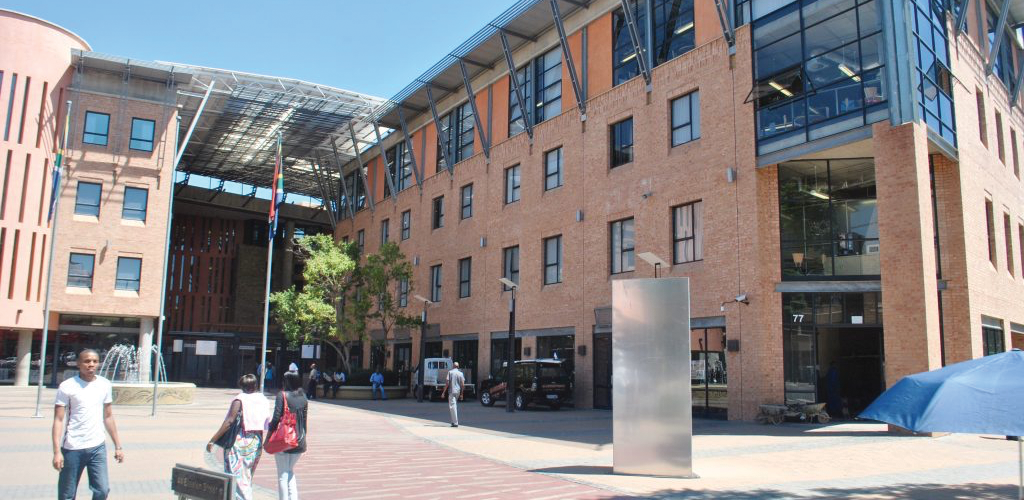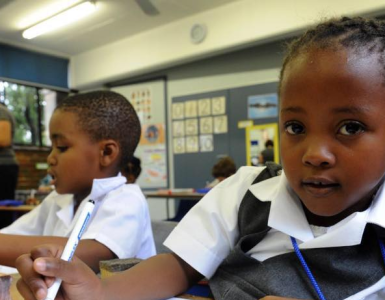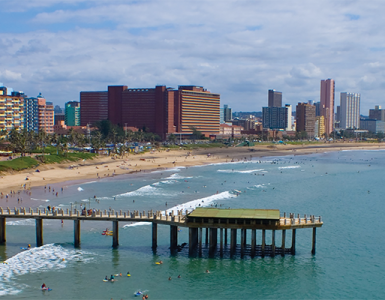GOVERNANCE: Whistleblower alleges serious corporate lapses inside the agency, prompting a departmental investigation…
By Lehlohonolo Lehana
The Department of Trade, Industry and Competition (DTIC) is investigating the allegations of corruption and maladministration at the SA Bureau of Standards (SABS).
SABS is the statutory body and an agency under the DTIC that is responsible for standardisation and quality of products and services.
In an open letter sent to Trade, Industry Minister Parks Tau on December 10, penned by an anonymous whistleblower, the SABS was accused of – among other things – irregular recruitment practices, board dysfunctionality, quashed whistleblower reports, inconsistency in dealing with disciplinary issues and financial misconduct.
One of the key issues raised in the whistleblower letter was the allegation of bonuses paid to executives. The same executives that have been reported by so many whistleblowers have allegedly now gone and paid themselves exorbitant bonuses, according to the whistleblower.
“Further to this, [the acting CEO] has not even completed four months of his term and he believes he needs a bonus. They have been getting acting allowances for years. How is it possible that they can be so greedy?” the author of the letter asks.
In response, the SABS is adamant that the whistleblower has an agenda to discredit the institution and its leadership for an unspecified reason.
“The SABS has adopted policies and procedures to protect whistleblowers. However, it must be noted that with a plethora of allegations that have been levelled against the SABS, there is no one who has come forward to the SABS as a whistleblower to test the veracity of the SABS ‘policies.
Be that as it may, the SABS confirms its commitment to the protection of whistleblowers in line with its policies and procedures,” the bureau said.
The Democratic Alliance (DA) Trade, Industry and Competition MP Toby Chance said the bureau’s response raised more questions than answers.
Chance said it had become clear that a culture of fear had infested the SABS such that staff were now afraid to speak out lest they be suspended, threatened and victimised.
He said the DA had also learned that significant resources were being spent in trying to identify whistleblowers rather than dealing with the issues raised.
Fullview contacted the DTIC for comment, but it declined to respond on the matters raised by the whistleblower, pending the investigation.
Meanwhile, several open letters of this nature have been written to Tau in recent months, with little to no perceived action being taken.
Commenting on an Engineering News inquiry, the bureau denied having paid out bonuses, stating:“No performance bonuses were paid for executives nor any SABS employees in 2024”.
On December 3, Engineering News reported that several SABS executives had been suspended over the past few months and that the bureau had suffered a crippling cyber-attack despite multimillion-rand investments in cybersecurity upgrades.
“[Several executives have been] suspended, the SABS is at a standstill because of a cyberattack, accreditations are being suspended because the SABS is unable to deliver, training services are suspended because the maintenance of facilities is atrocious . . . and the leadership . . . pay themselves a bonus authorised by the board,” the whistleblower alleges.
In a response to Engineering News, the SABS said in a statement today: “These claims . . . appear to be part of a deliberate effort to misrepresent the organisation and its leadership. After thorough internal reviews, we categorically state that these claims are baseless, lack context and are not supported by any credible evidence. These allegations seem intended to create a false narrative of leadership instability at the SABS,”
According to the whistleblower letter, the National Education, Health and Allied Workers Union (Nehawu) chapel at the SABS has been very vocal about the alleged corruption and calling for the heads of the executives. However, this had been met with swift reprisal from SABS leadership.
Allegations have also been made that the SABS Audit and Risk Committee, which is meant to be a guard against internal corruption, had been merged with the human resources (HR) and remuneration committee in breach of normal governance standards, a claim that the SABS also denies.
The SABS said the audit and risk committee and the human capital social and ethics committee are two separate committees of the board.
The whistleblower alleged that, since August, five laboratories have been added to the SABS supplier network, where payments have been made (totalling millions of rands but made in smaller amounts) for work that could not logically have started because the verification of these suppliers had not yet taken place. – Fullview/Additional reporting by Engineering News
Mirror Briefs
EX-MINISTER TO PAY BACK R2m
The Supreme Court of Appeal has ordered former Cabinet Minister, Bathabile Dlamini, to pay back more than R2 million to the SA Social Security Agency (Sassa) for private security for her personal protection in 2013.
In the ruling this week, Judge David Unterhulter declared unlawful the decision to procure close protection security services from Durban-based security company Vuco Security for the benefit of Dlamini and her then-spokesperson, Lumka Oliphant, setting the decision and agreement aside. “The second respondent [Bathabile Olive Dlamini] is ordered to pay to the applicant the sum of R2 008 086, together with interest at the prescribed rate of interest from the date the applicant made its last payment to the fourth respondent until the date of payment,” he said.
The security services contract was approved by Sassa, an entity that Dlamini was in charge of while she served as Minister of the Department of Social Development (DSD). At the time, Virginia Petersen was Sassa CEO. Sassa paid a total of R3.499 million, of which R2 008 086 was in respect of protection services for Dlamini’s children and R1 491 520 for Oliphant and her children. The North Gauteng High Court in Pretoria last year ruled that Dlamini, Oliphant and Petersen be held liable to repay Sassa the money. – Fullview
COP NABBED FOR RAPE
The police constable accused of raping a detainee has had previous run-ins with the law, the Blue Downs Magistrate’s Court heard this week.
Siyabonga Mbane appeared in court on a separate matter to the rape case. State prosecutor, Litha Duka, said: “The State is alleging that the accused does have a pending matter, which is domestically related, on which the accused was expected to appear. There are also other cases where the accused was arrested, which were provisionally withdrawn. “There are three cases from 2011, and one in 2021. That is the bail profile of the accused. That is why we are opposing the release of the accused on bail’’.
Mbane is expected to apply for bail for the rape case next week after his arrest on November 29. There was outrage from community members after reports that a female detainee was allegedly raped by a policeman. The woman was arrested for alleged kidnapping and attempted murder and the case was postponed to December 17 for the formal bail application.
“The 26-year-old victim alleges that she was raped by the accused in an empty cell, thereafter, she was taken back to her cell where she was locked with seven others. The incident allegedly occurred in the early hours of 28 November this year.’’ – SANews
PRISON-BORN GIRL FREED
The Republic of Mauritius has officially handed over a five-year-old girl born to a mother jailed for drug trafficking to South African government officials. The girl was handed over to the government of South Africa, through the Department of Social Development (DSD).
The DSD, in partnership with the South African diplomatic mission in Mauritius, has been working diligently for the past three years to bring the little girl back to her maternal family.
In an emotional handover this week, the mother and daughter hugged and kissed as the minor left her mother behind at the gates of Beau Bassin Prison. “It is painful to see her go, but I know it’s for the best for her future,” said her mother. She also expressed her regret for placing herself in such a difficult position, where she would not be able to see her child grow within the foreseeable future, while her case is being finalised.
The mother is still awaiting trial since the time she was arrested in 2019. As the little girl left the prison gates, all the female South Africans incarcerated at the prison there stood in a guard of honour to see the girl off as she began the journey back home.
Her grandmother from the North West, said the return of the child is the greatest Christmas present for her and her family.
AFRICA’S DEBT WOES
South Africa wants the Group of 20 to reassess the system it set up four years ago to restructure poor nations’ debt because it doesn’t consider the full extent of their burdens, according to Finance Minister Enoch Godongwana .
“We need a better review of the Common Framework. It is insufficient to deal with the kind of challenges we are dealing with in terms of debt service costs.” Both debtors and creditors have heavily criticised the G-20’s blueprint as being too slow and politically fraught. Some debt restructurings, such as those in Zambia and Ghana, have dragged on for years. It also doesn’t address nations saddled by high debt-service costs.
More than 40% of African countries allocate more funds to debt servicing than to health, a stark reflection of how these financial obligations are undermining the continent’s development goals, the United Nations said in a report last month. Earlier this year, Angola warned that it may not be able to pay state workers’ wages because of the costs.
Africa’s external debt has climbed to more than 650 billion dollars and debt-servicing costs reached almost 90 billion dollars in 2024, the UN said.
Poor nations often have to tap international debt markets — which charge a premium because they consider the countries to be risky investments — to fund their budget deficits.
South Africa, which took over the G-20 presidency from Brazil December 1, has made easing the heavy debt burden of low-income nations a priority.


































